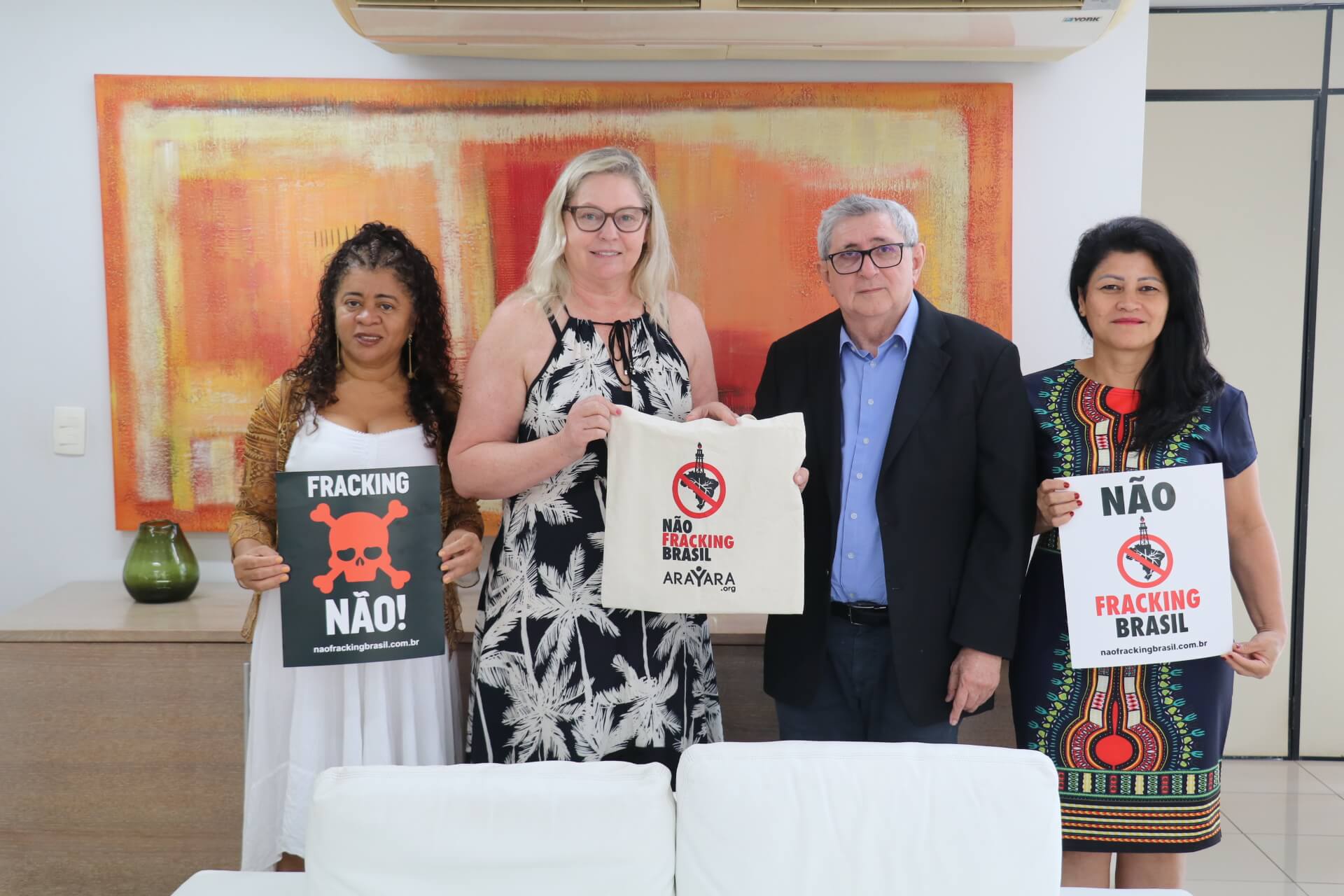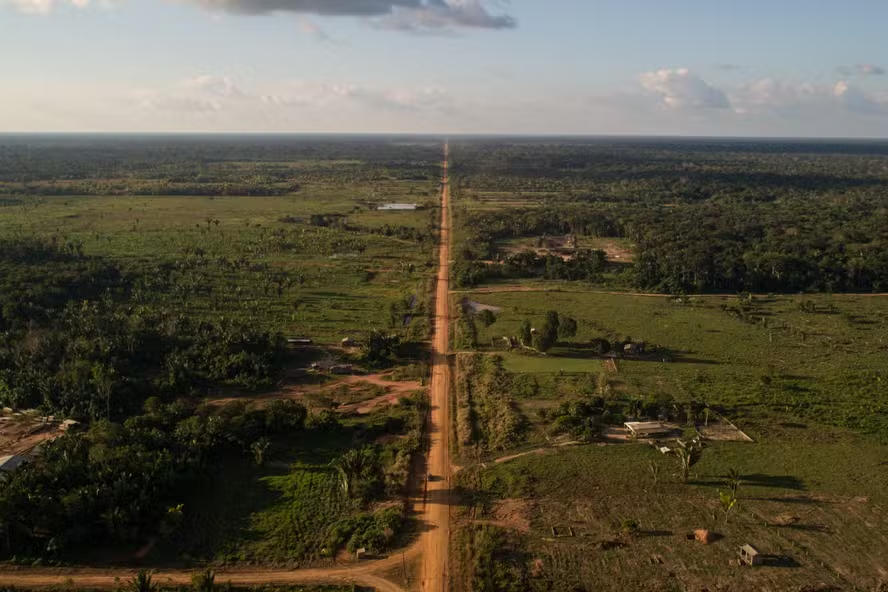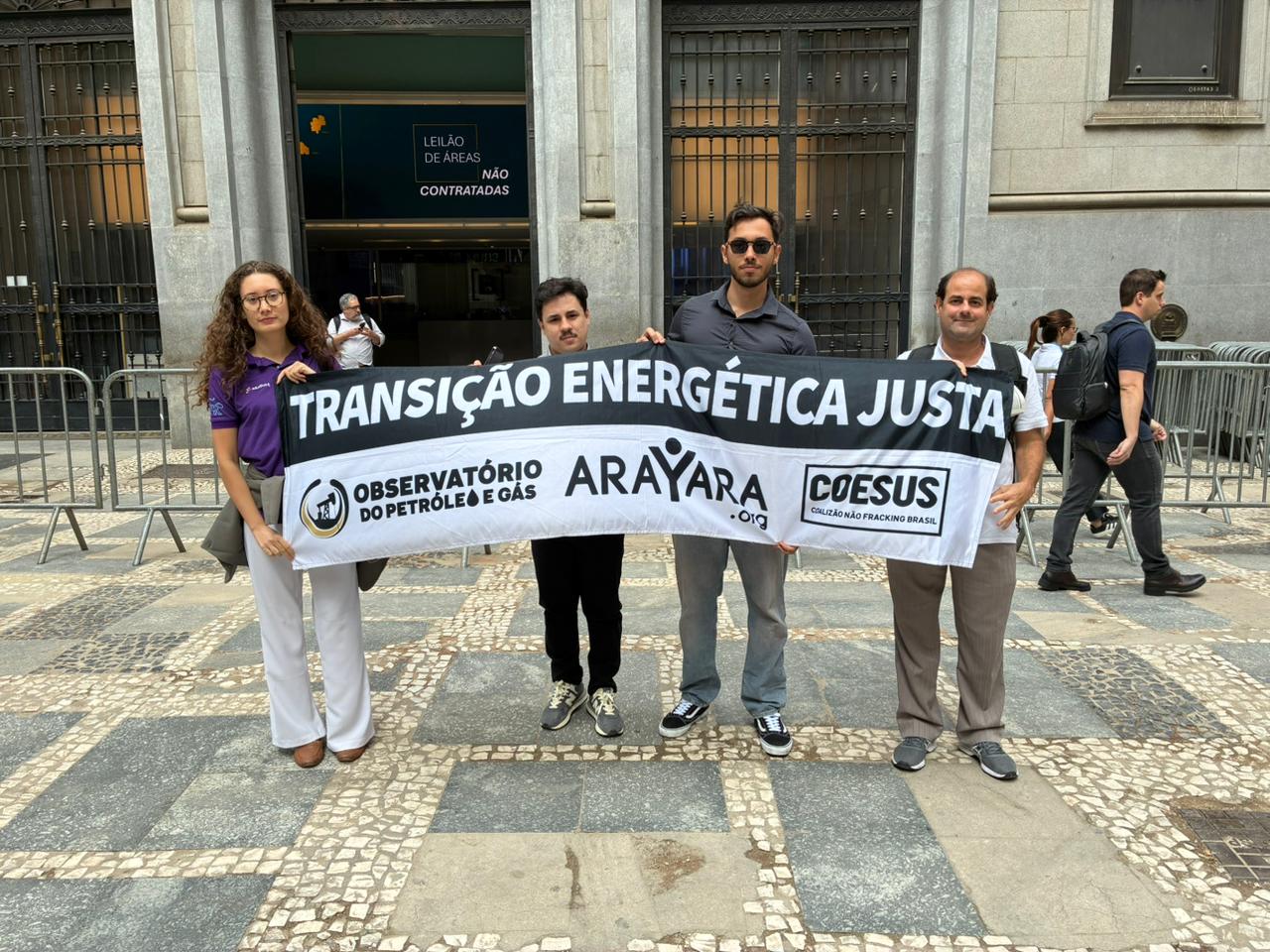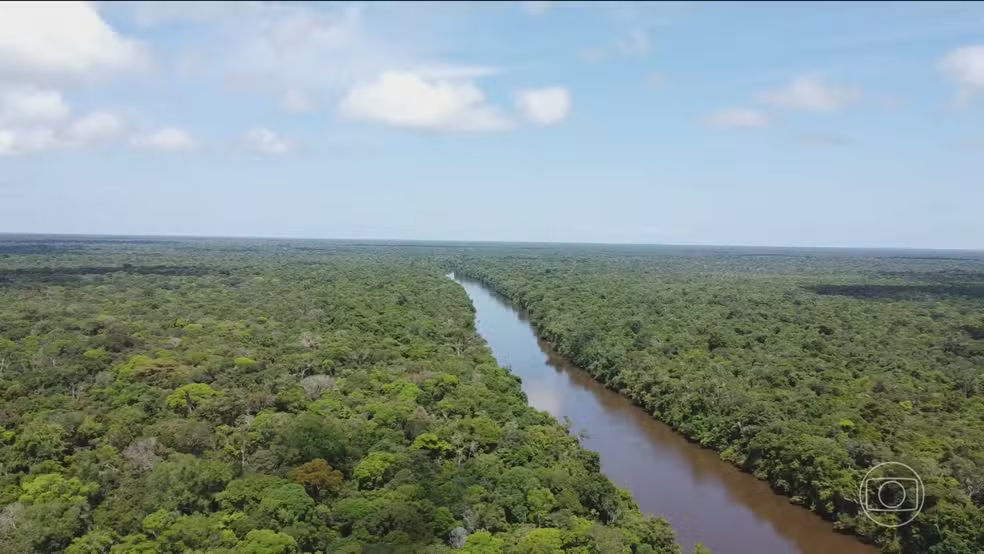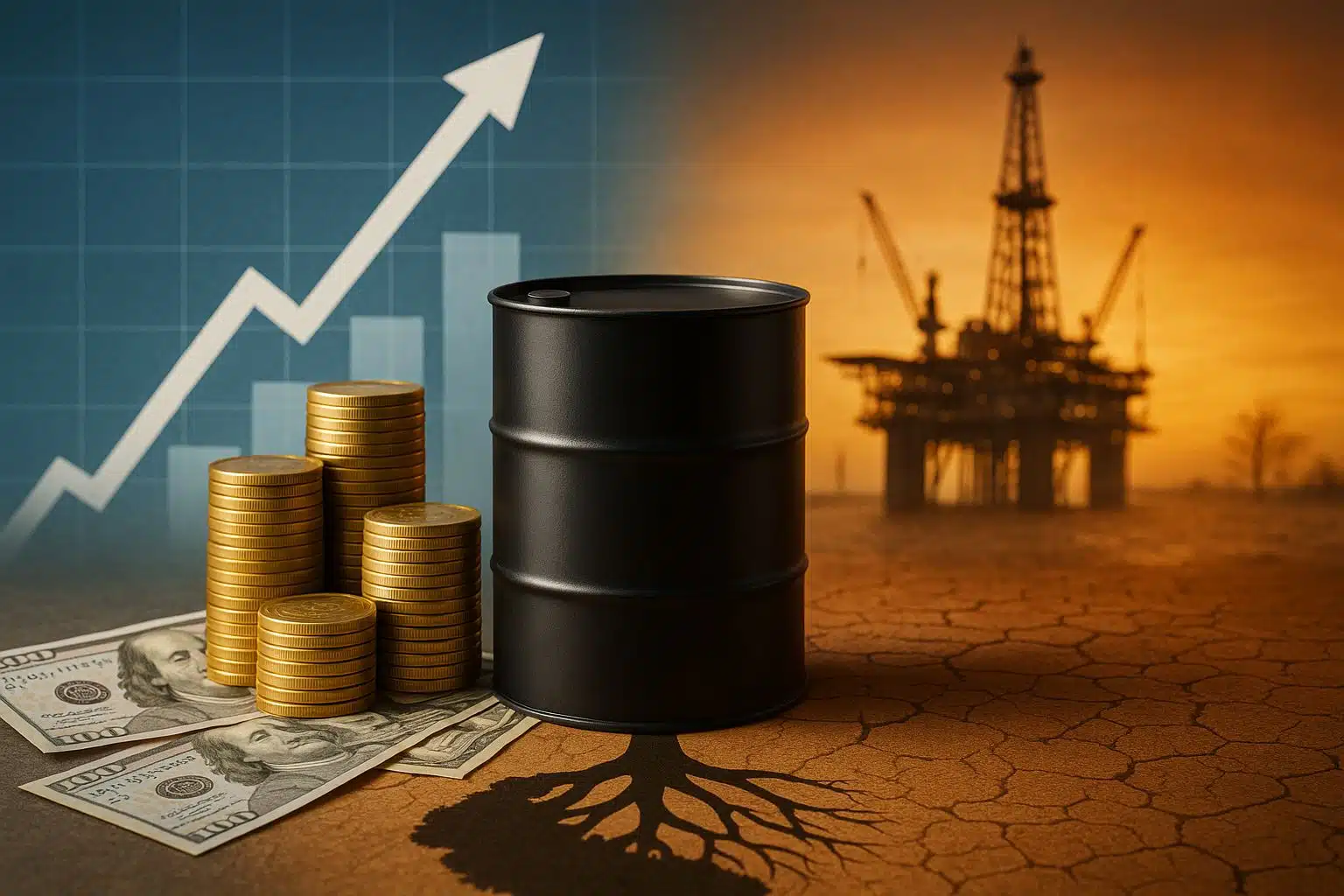Meeting attended by the President Councilor of TCE-MA
What is fracking?
Fracking – also known as hydraulic fracturing – is a process that involves injecting large volumes of water, chemicals, and sand at high pressure into underground rock layers to release trapped natural gas. Although this technique is already used in several countries, it is controversial due to its environmental and ecological damage, including groundwater contamination, greenhouse gas emissions, induced earthquakes, etc.
The anti-fracking campaign team (ARAYARA.org and COESUS – Coalition No Fracking Brazil for Water and Life) participated in a meeting with the Court of Auditors of the State of Maranhão – TCE-MA – on September 2, 2022. The visit to the TCE headquarters aimed to explain the impacts of fracking on the economy and public expenditure of the state.
Washington Luiz de Oliveira, the President Councilor of TCE-MA, attended the training conducted by the No Fracking Brazil campaign and expressed concern about the issues surrounding economic activities that will be highly impacted by the unconventional shale gas extraction method, known as hydraulic fracturing or “fracking”. During the meeting, Oliveira committed to organizing a technical seminar in collaboration with COESUS on the impacts of fracking on the economy of municipalities and the state of Maranhão.
“This is an issue that deserves the utmost attention from the government and public institutions and will be the subject of study and monitoring within the scope of external control from now on” said the councilor.
Fracking has negative effects on the economy of municipalities, such as the increase in diseases caused by the technique and the lack of water resources. The agriculture sector is the most affected, as the food becomes contaminated and unfit for consumption. Therefore, the interest and engagement of TCE-MA in this matter and their proactivity in protecting the population are of great importance

